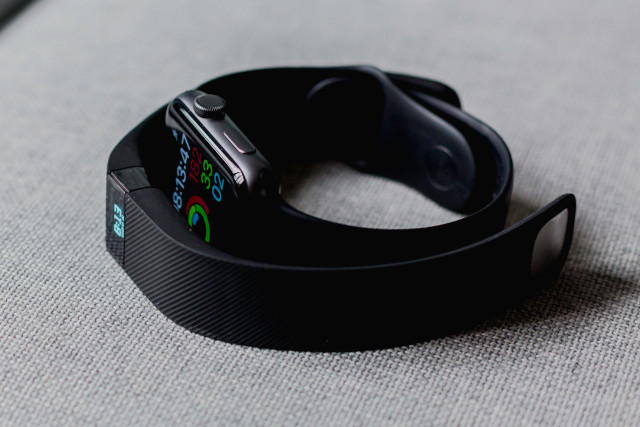 Photo by Andres Urena on Unsplash
Photo by Andres Urena on Unsplash
Xerox is looking to combine with HP Inc, which brings me back to the early days of this blog. There were rumors that HP Inc and Xerox were going to merge way back in 2015 but then Xerox got involved with Fuji Film and then they were no longer involved with Fuji Film. I am not sure how this deal would work considering Xerox wants to acquire HP which has the bigger market cap.
Google’s growing pains continue as critics ponder why the company is pushing so hard to get into hardware while the Government investigates them.
After years of fending off Microsoft, Slack is looking vulnerable due to poor paid growth projections. Everybody seems to be loving Microsoft at the moment, but they know how to be aggressive when they want to be, and they seem to want Slack out of the way.
Acquisitions/Investments
- HP confirms it has received a proposal from Xerox about being acquired
The Wall Street Journal got things rolling earlier today when it published a report that Xerox was interested in the printer company, reporting the offer could be for more than $27 billion. That’s a lot of money and the company has to at least consider it (assuming it’s accurate).
HP acknowledged there are ongoing discussions between the two companies and that it received an offer letter from Xerox yesterday. What’s odd about this particular deal is that HP is the company with a much larger market cap of $29 billion, while Xerox is just a tad over $8 billion. The canary is eating the cat here.
https://techcrunch.com/2019/11/06/hp-confirms-it-is-having-discussions-with-xerox-about-being-acquired/
Xerox to Sell Stake in Joint Venture to Fujifilm for About $2.3 Billion
Xerox has agreed to sell its 25% stake in the venture, Fuji Xerox, to Fujifilm as part of a deal that will bring Xerox total proceeds of $2.3 billion, the companies said.
Xerox has also agreed to sell a majority stake in a smaller joint venture to an affiliate of Fuji Xerox and extended the timeline of an agreement allowing Fujifilm to be a major supplier to Xerox, the companies said.
https://www.wsj.com/articles/xerox-to-sell-stake-in-joint-venture-to-fujifilm-for-2-2-billion-11572931801
- Workday to acquire online procurement platform Scout RFP for $540M
The acquisition builds on top of Workday’s existing procurement solutions, Workday Procurement and Workday Inventory, but Workday chief product product officer Petros Dermetzis wrote in a blog post announcing the deal that Scout gives the company a more complete solution for customers.
“With increased importance around the supplier as a strategic asset, the acquisition of Scout RFP will help accelerate Workday’s ability to deliver a comprehensive source-to-pay solution with a best-in-class strategic sourcing offering, elevating the office of procurement in strategic importance and transforming the procurement function,” he wrote.
https://techcrunch.com/2019/11/04/workday-to-acquire-online-procurement-platform-scout-rfp-for-540m/
- T-Mobile’s latest merger gambit isn’t subtle
The three programs T-Mobile announced are contingent on the merger. The company will only provide these services if it is able to complete its merger with Sprint. These programs are each cleverly designed to give T-Mobile instant rebuttals to potential criticisms of the merger. They’re so well-crafted that I can’t help but applaud how genius they are as pieces of propaganda. Even calling them “propaganda” makes me the asshole!
https://www.theverge.com/2019/11/8/20954479/t-mobiles-5g-publicity-stunt-firefighters-merger-sprint
Artificial Intelligence
Cloud
Security/Privacy
Software/SaaS
- Microsoft reveals the future of OneNote and it’s all about Fluid and desktop
So what does this mean for the separate OneNote for Windows 10 app? Hodes didn’t reveal exactly what Microsoft is planning, but Mike Tholfsen, a Microsoft product manager, says “there will still be a Desktop and separate Windows 10 app.” It’s hard to imagine that two OneNote apps will exist to confuse Windows 10 users, but Microsoft does still have two Skype apps. It’s far more likely that at some point Microsoft will put development of this dedicated version on hold, as the company will start installing OneNote 2016 by default with Office 365 installs in March.
Microsoft experimented with universal Office apps for Windows 10, but the company put these apps on hold last year. “We are currently prioritizing development for the iOS and Android versions of our apps; and on Windows, we are prioritizing Win32 and web versions of our apps,” explained a Microsoft spokesperson at the time.
https://www.theverge.com/2019/11/7/20953691/microsoft-onenote-to-do-integration-fluid-framework-future-features-ignite-2019
- Slack continues to sink as analysts worry Microsoft will kill it
The Microsoft threat is a big reason why Slack’s stock, which debuted in late June through a direct listing on the New York Stock Exchange, has plunged in the past few months. It’s a classic David vs. Goliath story — except that most investors don’t believe Slack has a big enough rock to slay the giant from Redmond, Washington.
Slack shares fell 2% Friday and dipped below $20, hitting an all-time low that is 25% below the stock’s reference price of $24 on the day of its Wall Street debut. The stock has plummeted more than 50% from its peak of $42, which it reached on its first day of trading.
The company reported a big loss and slowing sales growth in September, news that spooked investors.
https://www.cnn.com/2019/11/08/investing/slack-stock-microsoft-teams/index.html
Infrastructure/Hardware






